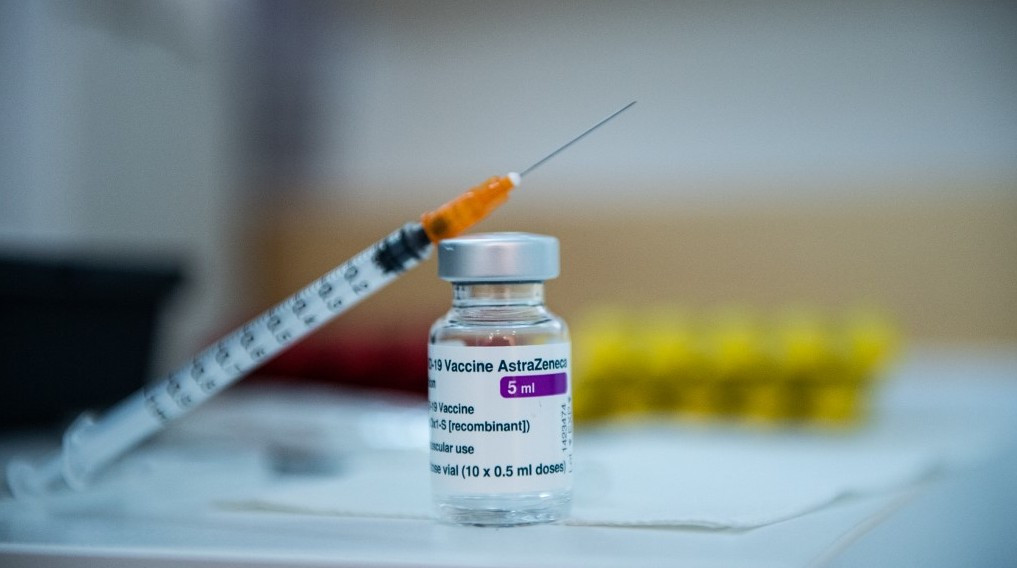Popular Reads
Top Results
Can't find what you're looking for?
View all search resultsPopular Reads
Top Results
Can't find what you're looking for?
View all search resultsDissecting the economics of vaccines
Price discrimination, patent waivers or a combination of the two are all potential solutions to global vaccine inequity, but the clock is ticking.
Change text size
Gift Premium Articles
to Anyone
It has been over a year since the World Health Organization declared COVID-19 as a global pandemic.
Severe lockdowns have harmed efforts to develop a cure for this deadly novel virus. Global demand for vaccines has affected trade relations between countries. Pharmaceutical companies have had to secure huge amounts of funding from investors, because vaccine research and development costs a lot of money for vigorous testing and strict quality control.
The huge gap between supply and demand has driven vaccine prices through the roof, as pharmaceutical companies want high returns to recoup research and production costs as well as to patent and protect their vaccine products.
At a time when the deadly pandemic continues to threaten every country in the world, it seems both morally and ethically wrong to enforce intellectual property (IP) rights for COVID-19 vaccines, as this could widen vaccine inequity between developed and developing countries. Even now, one out of every four people has been vaccinated in developed countries, but in developing countries, only one out of every 500 people has been vaccinated due to a lack of supply amid complex marketing rules.
IP rights do help establish standards by ensuring quality and promoting investments in pharmaceutical research. Promoting innovation is very important and in the pharmaceutical industry, big investments are needed to develop drugs and vaccines for newly discovered diseases and pathogens.
As mass vaccination is the only possible way to achieve herd immunity, some governments are pushing vaccine producers to price their vaccines differently for different categories of consumers and countries by per capita income. Vaccine producers can charge high prices for people in developed countries to gain profits in order to recoup their investment, but charge very low prices or even give them at no cost to people in developing countries. This way, pharmaceutical companies can still make a handsome profit and continue to research new drugs and vaccines.
Price discrimination could be a solution to increase market efficiency, because it not only upholds government-issued IP rights, but is also in line with social responsibility. However, price discrimination could lead to political conflict if it is not done correctly and ethically through healthcare diplomacy, since different market prices could apply to different countries. Still, price discrimination is the simplest way to distribute vaccines around the world without neglecting IP and maintaining prices adjustable to the recipient country.
However, pharmaceutical companies may also be worried about the emergence of counterfeit vaccines. The debate between IP rights and public welfare does not stop there. South Africa and several other developing countries have demanded that they be exempted from IP rights for COVID-19 vaccines.
A temporary patent waiver proposed by South Africa and several other countries does not equal breaking the economy, since we have more work to do on the vaccines with better technology and cheaper materials to achieve higher efficacy against the virus. The proposed waiver is beneficial for pharmaceutical companies, even better than the price discrimination policy, but it has met with strong opposition.
By waiving IP rights, pharmaceutical companies cannot set very high prices, since other producers can supply virtually the same product with little to no initial investment costs. The market will respond by lowering the prices of all vaccines, which would make them more widely available for the public. COVID-19 vaccines would then become a normal commodity subject to the simple law of market equilibrium, meaning that higher prices drive down demand and vice versa.
Of course, waiving IP rights does not mean market failure; rather, it is a mechanism by which the market shifts capital to a cheaper production model to keep up with demand and maximize production. Therefore, even though it is temporary, the massive demand for vaccines can be satisfied and pharmaceutical companies would remain commercially viable.
It would even be better if the scheme combined a vaccine patent waiver with price discrimination.
If pharmaceutical companies and governments remain resolute in enforcing vaccine patents amid the deadly COVID-19 pandemic, eventually there will not be a market for the vaccines anymore due to the exorbitant death toll.
***
The writer is a graduate student of bioethics at Gadjah Mada University and a contributor to Heuristik.id.










